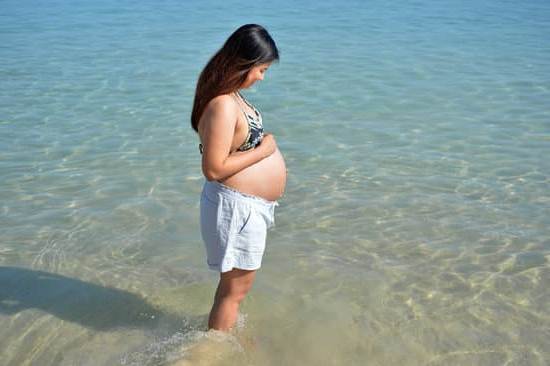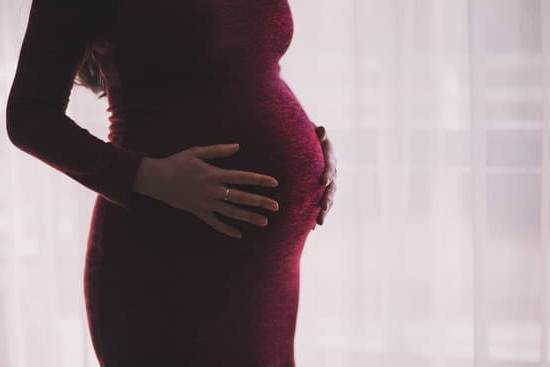As expectant mothers progress through their pregnancy journey, each week brings about new changes and developments for both the baby and the mother. Week 10 of pregnancy is a significant milestone as it marks the end of the first trimester and the beginning of the second trimester.
During this time, various physical, emotional, and developmental changes occur in both the mother and her growing baby. In this article, we will explore the exciting transformations that take place during Week 10 of pregnancy, including symptoms, body changes, emotional shifts, fetal development, nutritional needs, prenatal care, exercise and wellness tips, as well as common concerns that may arise.
At Week 10 of pregnancy, many women experience a range of physical symptoms such as nausea, fatigue, breast tenderness, and frequent urination due to the hormonal changes occurring in their bodies. Additionally, there are noticeable changes happening within the mother’s body as her uterus expands to accommodate the growing baby.
On an emotional level, expectant mothers may also experience mood swings and heightened emotions as a result of fluctuating hormones. It is crucial for pregnant women to understand these changes and find ways to address them with proper self-care.
Furthermore, at Week 10 of pregnancy, fetal development is rapidly progressing with vital organs forming and facial features becoming more defined. Expectant mothers also need to focus on their nutritional needs by maintaining a healthy diet that supports both their own health and the optimal growth of their baby. Prenatal care becomes essential during this stage with regular doctor’s visits and tests to monitor the well-being of both the mother and her developing child.
Additionally, staying physically active while prioritizing wellness is key for a healthy pregnancy journey. Throughout this article, we will delve deeper into these topics surrounding Week 10 of pregnancy to provide expecting mothers with valuable insights and guidance during this crucial stage of their journey to motherhood.
Physical Changes
Week 10 of pregnancy brings about various physical changes in a woman’s body as her baby continues to grow and develop. Here are some common symptoms and body changes that women may experience during this stage:
- Increased breast tenderness and sensitivity
- Visible veins on the breasts
- Nausea and vomiting (morning sickness)
- Fatigue and exhaustion
- Heightened sense of smell
- Food aversions or cravings
These physical changes can vary from woman to woman, but it’s important to pay attention to these symptoms and discuss them with a healthcare provider if they become severe or unbearable. It’s also essential for women in week 10 of pregnancy to listen to their bodies, rest when needed, and prioritize self-care during this critical time.
In addition to these symptoms, women may start noticing visible physical changes in their bodies during week 10 of pregnancy. These can include:
- A tiny baby bump starting to show
- Possible weight gain due to increased appetite and hormonal changes
- Skin changes such as acne or darkening of the skin around nipples (areolas)
Understanding these physical changes can help expectant mothers feel more prepared and informed about what to expect in week 10 of pregnancy. It’s crucial for women to seek prenatal care, eat a balanced diet, stay hydrated, and engage in gentle exercise routines to support overall well-being during this stage.
Emotional Changes
During week 10 of pregnancy, emotional changes can be quite pronounced due to hormonal shifts and mood swings. Hormones such as estrogen and progesterone continue to fluctuate, often leading to mood swings, irritability, and heightened emotions. It is important for expectant mothers to understand that these emotional changes are a normal part of pregnancy and are generally attributed to the hormonal adjustments taking place in their bodies.
Understanding Hormonal Shifts
Hormonal shifts during week 10 of pregnancy can lead to a rollercoaster of emotions. As the body continues to adapt to the presence of the developing baby, hormone levels can fluctuate significantly. Estrogen, progesterone, and other hormones play a crucial role in maintaining the pregnancy and supporting the development of the baby. However, these hormonal fluctuations can also impact mood and emotional well-being.
Coping With Mood Swings
Expectant mothers may find themselves experiencing mood swings during week 10 of pregnancy. One moment they may feel elated and excited about the impending arrival of their baby, while the next moment they may feel overwhelmed or teary.
Coping with these mood swings involves acknowledging that they are a normal part of the pregnancy journey and finding healthy ways to manage them. This could include talking openly with a partner or loved one about feelings, engaging in relaxation techniques such as deep breathing or meditation, and ensuring adequate rest and self-care.
It’s important for partners and family members to provide understanding and support during this time. By acknowledging that emotional changes are a natural aspect of week 10 of pregnancy, individuals can work together to navigate through this phase with empathy and patience.
Baby’s Development
During week 10 of pregnancy, your baby is rapidly growing and reaching important milestones. Here are some key developments happening during this stage:
- Formation of vital organs: By week 10, your baby’s vital organs such as the heart, liver, kidneys, and brain are starting to develop. These organs will continue to mature and grow throughout the pregnancy.
- Movement: While you won’t be able to feel it yet, your baby is already moving around in the amniotic sac. At this stage, the baby’s arms and legs are also beginning to lengthen as they prepare for more coordinated movement in the coming weeks.
- Facial features: Your baby’s facial features are becoming more defined as their nose, mouth, and ears take shape. The eyes also continue to develop although they are still fused shut at this point.
As your baby’s development progresses in week 10 of pregnancy, it’s essential to focus on maintaining a healthy lifestyle and getting the necessary prenatal care to support their growth.
Remember to speak with your healthcare provider about any concerns or questions you may have regarding your baby’s development during this crucial stage of pregnancy. This will ensure that you receive proper guidance and support throughout this journey.
Nutritional Needs
During week 10 of pregnancy, it is essential to pay close attention to the nutritional needs of both the mother and the developing fetus. The body goes through significant changes during pregnancy, and a well-balanced diet plays a crucial role in supporting these changes. It is important for expectant mothers to focus on obtaining the necessary nutrients to support the health and development of their growing baby.
One key nutrient that is particularly important during week 10 of pregnancy is folic acid. This B vitamin is crucial for the development of the baby’s neural tube, which eventually becomes the brain and spinal cord. Foods rich in folic acid include leafy greens, citrus fruits, beans, and fortified cereals. Additionally, it may be necessary for some women to take a prenatal vitamin or folic acid supplement to ensure they are getting an adequate amount.
In addition to folic acid, it is also important for pregnant women to consume a variety of nutrients including iron, calcium, protein, and healthy fats. Iron helps prevent anemia and supports the baby’s growth and development while calcium aids in bone formation. Protein is essential for fetal growth, and healthy fats are necessary for brain development. A well-rounded diet that includes lean proteins, dairy products, whole grains, fruits, and vegetables can help meet these nutritional needs.
| Nutrient | Sources |
|---|---|
| Folic Acid | Leafy greens, citrus fruits, beans |
| Iron | Lean meats, poultry, fish |
| Calcium | Dairy products (milk, cheese), broccoli |
Prenatal Care
During week 10 of pregnancy, prenatal care becomes even more crucial as the baby continues to grow and develop. This is the time when regular doctor’s visits are essential to monitor the health and progress of both the mother and the baby. At this stage, healthcare providers will conduct various tests and screenings to ensure that everything is progressing as it should be.
One of the key tests during week 10 of pregnancy is the nuchal translucency (NT) scan, which measures the fluid accumulation behind the baby’s neck. This test helps assess the risk of Down syndrome and other chromosomal abnormalities. Additionally, blood tests may be done to check for certain markers that could indicate potential issues with the pregnancy.
In terms of doctor’s visits, expecting mothers can expect to have regular prenatal check-ups throughout week 10. These visits will involve discussing any symptoms or concerns that may have arisen, tracking weight gain, blood pressure monitoring, and generally ensuring that both mother and baby are healthy.
| Test/Procedure | Purpose |
|---|---|
| Nuchal Translucency (NT) Scan | To assess risk of chromosomal abnormalities |
| Blood Tests (e.g. PAPP-A) | To screen for potential issues with pregnancy |
Exercise and Wellness
Staying fit and healthy during week 10 of pregnancy is important for both the expecting mother and the growing baby. While it’s essential to consult with a healthcare provider before starting or continuing any exercise routine, there are certain activities and wellness practices that can support a healthy pregnancy.
Safe Exercise Options
Many women wonder if they can continue their regular exercise routines during week 10 of pregnancy. The answer is often yes, with modifications. Low-impact activities such as walking, swimming, and prenatal yoga are generally safe options for most pregnant women. It’s important to listen to your body and avoid activities that may put you at risk for falls or injury.
Mind-Body Wellness
Week 10 of pregnancy can be a time of emotional ups and downs due to hormonal changes. Engaging in mind-body practices such as meditation, deep breathing exercises, and prenatal massage can help reduce stress and promote overall well-being. These practices can also help expecting mothers connect with their growing baby and find moments of calm amidst the physical and emotional changes they may be experiencing.
Healthy Living Habits
In addition to exercise, maintaining overall wellness during week 10 of pregnancy involves adopting healthy living habits. This includes getting adequate rest, staying hydrated, and eating a balanced diet rich in fruits, vegetables, lean proteins, and whole grains. Avoiding alcohol, tobacco, and non-prescribed drugs is also crucial for the health of the mother and baby.
Common Concerns
When it comes to week 10 of pregnancy, many women may start to experience common concerns and have questions about their pregnancy. One common concern during this time is the possibility of miscarriage. It’s important to remember that at this stage, the risk of miscarriage significantly decreases as the baby continues to develop and grow. However, if you experience any unusual symptoms such as heavy bleeding or severe abdominal pain, it’s crucial to contact your healthcare provider immediately.
Another common concern during week 10 of pregnancy is morning sickness. While some women may start to feel relief from morning sickness around this time, others may still be experiencing nausea and vomiting. It’s important to stay hydrated and eat small, frequent meals to help manage these symptoms. If morning sickness becomes severe and affects your ability to eat or drink, consult with your doctor for potential treatment options.
Many expectant mothers also have common questions about prenatal vitamins and supplements during week 10 of pregnancy. It’s essential to continue taking prenatal vitamins that contain folic acid and other essential nutrients for the baby’s development. If you have any concerns about which prenatal vitamins are best for you or are unsure about certain supplements, speak with your healthcare provider for personalized recommendations.
Overall, it’s normal for expectant mothers to have various concerns and questions during week 10 of pregnancy. Remember that every pregnancy is unique, and it’s important to communicate openly with your healthcare provider about any issues or uncertainties you may have.
Conclusion
As week 10 of pregnancy comes to a close, it’s important for expectant mothers to reflect on the changes and developments that have occurred during this crucial time. From physical and emotional shifts to the growth and milestones of the baby, week 10 marks the end of the first trimester and the beginning of an exciting new phase.
As you look forward to the next trimester, it’s essential to stay focused on your prenatal care, nutritional needs, and overall wellness.
One of the most significant aspects of reaching week 10 is seeing how your baby has grown and developed in such a short period. From being just a tiny embryo at conception to now having fully formed organs and facial features, it’s awe-inspiring to witness these incredible changes. Looking ahead, knowing that your baby will continue to flourish in the second trimester can bring a sense of hope and anticipation for what’s to come.
As you prepare for the next trimester, it’s essential to prioritize your prenatal care by attending regular doctor’s visits and undergoing any necessary tests or screenings. Your healthcare provider will guide you through each step of your pregnancy journey, offering support and guidance as you navigate through this transformative time.
Additionally, focusing on maintaining a healthy diet, staying physically active within recommended guidelines, and addressing any common concerns will contribute to a positive experience moving forward. Embracing these aspects can help ensure that both you and your baby remain in good health throughout your pregnancy journey.
Frequently Asked Questions
What Should I Be Feeling at 10 Weeks Pregnant?
At 10 weeks pregnant, it’s common to experience symptoms like nausea, fatigue, and breast tenderness. You may also start to show a small baby bump as your uterus grows.
What Should You Not Do at 10 Weeks Pregnant?
At 10 weeks pregnant, it’s important to avoid smoking, drinking alcohol, or using any recreational drugs. It’s also best to avoid certain foods that may pose a risk of food poisoning.
Should I Look Pregnant at 10 Weeks?
At 10 weeks pregnant, every woman’s body is different, so some may start to show a small baby bump while others may not be visibly pregnant yet. Factors like body shape and size can influence how quickly you begin showing.

Welcome to my fertility blog. This is a space where I will be sharing my experiences as I navigate through the world of fertility treatments, as well as provide information and resources about fertility and pregnancy.





